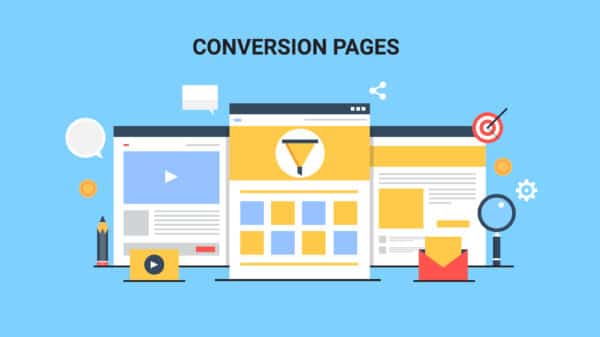Companies are constantly striving to enhance their pay-per-click (PPC) performance, aiming to achieve a higher return on investment (ROI) than the industry benchmark.
If you’re looking to upgrade your PPC game, this post has got you covered. We’ll delve into effective strategies to improve your PPC performance.
1. Cut the dead weight
Eliminate underperforming keywords and embrace negative keywords. To unlock your PPC campaign’s true potential, it’s crucial to identify and remove keywords that drag down its performance. Look out for telltale signs of low-performing keywords, such as low impressions, clicks, and conversions. A keyword might generate clicks but fail to convert, or receive ample impressions but yield zero clicks. Before dismissing these keywords, research their search intent and explore optimization possibilities. For instance, let’s say your business competes with iRobot and targets keywords like “irobot roomba 960 vs 980” to redirect traffic from potential buyers. If this keyword garners impressions but lacks clicks, it indicates that shoppers prefer the brand and seek content comparing the two models. While your product page serves as a landing page, it doesn’t cater to their intent. In this case, removing the keyword would be prudent, as it enables you to focus on relevant and profitable keywords. Additionally, consider adding negative keywords to prevent your ads from displaying for irrelevant search terms, even if they generate impressions and clicks. By implementing these updates, you’ll witness an improvement in your PPC performance.
2. Take control with manual bidding
Optimize PPC bids for maximum impact. For proactive management of PPC campaigns, manual bidding empowers you with unparalleled control. While automated bidding options exist, manual bidding allows you to fine-tune your strategy. To optimize your PPC performance through manual bidding, regularly review your campaigns—preferably on a daily or weekly basis—to avoid over- or under-bidding pitfalls that can harm your ROI. Start by focusing on campaigns with at least 30 days of data. This dataset provides valuable information for setting your bids, such as the average cost per click (CPC), cost per acquisition (CPA), or cost per thousand impressions (CPM). Calculators like the CPC, CPA, and CPM calculators can assist you in determining these values accurately. Once you’ve conducted your research and calculations, navigate to Google Ads, select your campaign, access the settings, click on “Bidding,” choose “Manually set bids” from the dropdown menu under “How do you want to get conversions,” and save your changes. Adjust your maximum bids for each keyword in the “Keywords” section. Remember to set reminders to monitor your campaigns closely in the following days. This PPC optimization strategy grants you greater command over your bidding process.
3. Craft captivating landing pages
Elevate your PPC performance with dedicated destinations. In the realm of platforms like Google Ads, landing pages hold immense sway over your PPC success. To ensure exceptional campaign performance, you must provide relevant, speedy, and functional landing pages. In essence, a landing page is the destination where users arrive after clicking on your PPC ads. For optimal results, focus on campaigns with lackluster landing pages, as they stand to gain the most from a dedicated landing page designed to drive significant improvements in impressions, clicks, and conversions. Imagine running an ad campaign for residential landscaping services that directs users to your company’s homepage. This generic landing page leaves users stranded, forcing them to search for information about your service rates, features, and operating hours. A superior landing page would center entirely on your residential landscaping services, providing comprehensive details such as operating hours, rates, deliverables, and trust signals like client testimonials or images showcasing your work. Even if you already have a page dedicated to residential landscaping services, consider creating a tailored landing page that aligns precisely with your ad. Such a page can significantly boost your conversion rates. When constructing a landing page, ask yourself: Is it relevant to your ad? Does it load quickly? Does it function seamlessly across devices? Is it user-friendly? Does the copy build upon the ad’s message? Don’t worry if you lack design and development expertise. Tools like Unbounce, Lander, or Mailchimp can help you create visually appealing landing pages. Alternatively, consider utilizing professional landing page design services. Remember, settling for lackluster landing pages will inevitably hamper your PPC performance.
4. Embrace the power of words
Experiment with fresh ad copy for impactful PPC campaigns. Your ad copy can either make or break your PPC campaigns. Therefore, never underestimate the importance of writing and testing new ad copy—an essential PPC tip that demands your attention. By exploring different headlines and descriptions, you open doors to discovering novel ways of motivating your audience to click and engage with your ads. If you employ responsive ads or responsive display ads, testing your ad copy becomes effortless. These ad formats allow you to provide Google with multiple headline and description variations. Google will conduct tests using various combinations to determine the most effective copy. When using responsive ads, ensure that your headlines and descriptions maintain coherence when mixed and matched. For instance, if your headline boasts “Free Shipping on Your First Order,” avoid pairing it with a description like “Get free expedited shipping on your first order today!” Irrespective of the ad type, integrate the following PPC tips while crafting ad copy: incorporate power words like “free,” “simple,” or “guaranteed”; leverage numbers to highlight satisfied clients or shipped orders; directly address users using the word “you”; include targeted keywords; and tap into emotions or problems, such as simplifying household cleaning. As you update your ad copy, set reminders to regularly evaluate your campaigns. Depending on the search volume of your keywords or the scale of your remarketing campaigns, you can quickly gather data on your ad copy’s performance.
5. Structure for success
Keep your ad accounts organized for optimal PPC outcomes. Even seasoned PPC experts can fall victim to disorganized ad accounts over time. Establishing a consistent schedule for auditing and updating your account structure is a valuable PPC campaign optimization tip that can yield superior results. Platforms like Google Ads adopt the following account structure: Ad account, Campaigns, Ad groups, Ads, and Keywords. In line with this PPC tip, focus on organizing your campaigns and ad groups, as these areas are commonly associated with account disarray. You may discover that certain ad groups warrant dedicated campaigns. For example, if your business launches an ad campaign targeting women’s products, consider creating separate campaigns for women’s shoes, tops, and pants within that specific niche. Regularly assessing your account structure can maximize your PPC performance—so don’t neglect this essential step!
6. Seek professional insights
Consider a PPC audit to uncover hidden potential. If you’ve exhausted various PPC tips without witnessing significant improvements in your results, it may be time to consider a professional PPC audit. A comprehensive review conducted by industry experts can shed light on campaign-specific strategies to elevate your PPC performance. While it is possible to conduct an audit in-house, frustration stemming from lackluster outcomes often impedes progress. By seeking the perspective and expertise of a PPC auditor, you can gain fresh insights and a second opinion, ultimately paving the way for improved results tailored to your campaigns and strategies.
So, if you’re determined to achieve remarkable PPC performance, make use of these actionable tips. Remove underperforming keywords, optimize your bidding strategy, create compelling landing pages, experiment with captivating ad copy, maintain a well-organized account structure, and consider professional auditing services. Unleash the true potential of your PPC campaigns and unlock higher returns on your investment.












